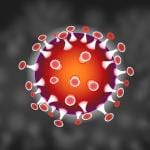When it comes to the concept of relations there is some clarification that must first take place. To the everyday person, relation means someone to whom you are related. At the base level this is correct, but philosophically it goes a little deeper. This is especially true when discussing relations in connection with the Trinity. St. Thomas Aquinas’s concept of relations included paternity and filiation (Garrigou-Lagrange Introduction).
Relation of the Father and Son
Paternity and filiation, of course, are completely different things. A man can at the same time be a father and a son. He is father to a child, and a child, or offspring to someone else. It is not possible to be both to the same person. The idea here is that paternal relation delineates a distinction between persons.
In the Trinity the Son is not able to be the Father because the Father is paternal. It shows a distinction between the two, and though they are of the same substance they are separate. Regarding this concept Aquinas states, “Thus the Father has communicable being, but He is a distinct person by the paternity, which is opposed to filiation; similarly, active spiration is opposed to passive spiration” (Garrigou-Lagrange Introduction).
The Sonship of Christ
If paternity denotes the relationship of the Father and Son, then what is filiation? Paternity is a term that applies to fatherhood and filiation is a term that implies sonship. This was a key point in Aquinas’s opposition to the Scotists. The Son is distinguished from the Father through filiation alone, but within God paternity and filiation are personal properties (Garrigou-Lagrange Ch. XIV). In filiation the Son has all the perfections from all eternity that the Father has. This is done through generation and it is perfect based on relation.
One objection to the idea of filiation is the fact that Jesus said that the Father was greater than he (John 14:28). Is not Jesus saying that he is somehow less than the Father? That is what those wo object to the Trinity would have you believe? Jesus says this because he lacks the relation of paternity. This is something that is wholly unique to the Father. They are the same essence and paternity in the Father in filiation in the Son (Garrigou-Lagrange Ch. XIV).
Proper Understanding Avoids Heresy
Divine filiation is not less than, or somehow subordinate, to paternity. If that were the case then the Son would lack perfection, and that would not make him divine. To think that way would lead us into many of the Christological heresies that the Church had already dealt with. Regarding this Aquinas writes, “Thus divine filiation is not less perfect than divine paternity, just as in the triangle either angle at the base is not less perfect than the angle at the apex” (Garrigou-Lagrange Ch. XIV).
Regarding paternity, Aquinas answered an objection that stated that divine persons were brought about by active and passive origins (Garrigou-Lagrange Ch. XIV). Generation is active and active generation is something that comes from the Father. This is a relation of Paternity and the very act refers to the Son. This does not change the existence of the Son or modify it in some way. They are still the same essence, but in relation to one another, one is paternal.
In Conclusion, St. Thomas Aquinas wrote many things that advanced our understanding of the Trinity. His explanation from scripture and philosophy helped elaborate on earlier work done on the Trinity by St. Augustine. It is important to understand the distinctions between paternity and filiation, because to misunderstand can lead to error in discussing the Trinity.
Works Cited
Garrigou-Lagrange, Reginald. The Trinity and God the Creator. https://www.ewtn.com/library/THEOLOGY/TRINITY.HTM#05, accessed March 5, 2020














